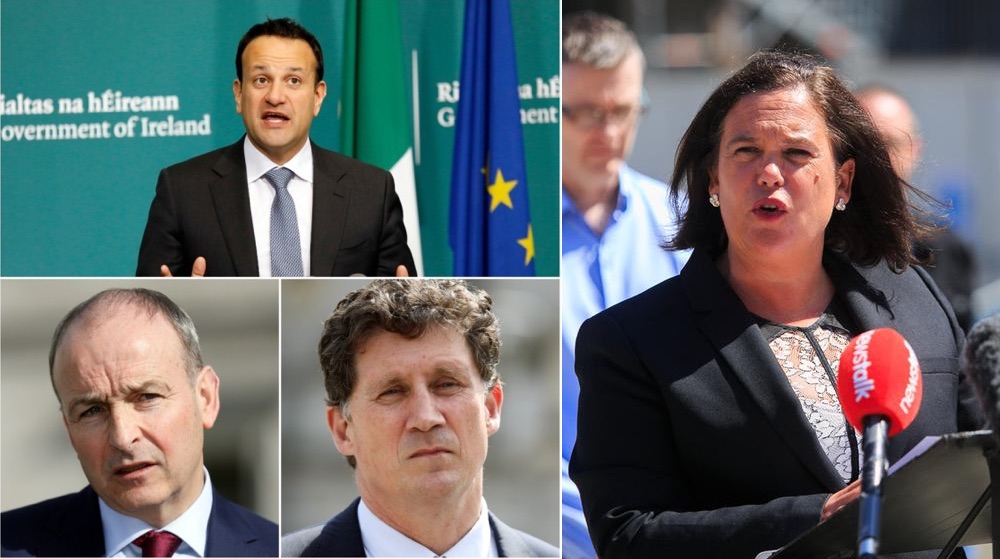
Nationalists and republicans have been left disappointed by the Programme for Government presented by the leaders of three potential coalition partners in Dublin.
Fianna Fáil, Fine Gael and the Green Party won 38, 35 and 12 seats respectively in the general election in February, giving them a majority, 84 out of 159 seats, in the Leinster House parliament.
Their plan for a coalition government is a 139-page volume of promises, restatements and affirmations. Many pander to those issues which led to the sharp decline in support for Fianna Fáil and Fine Gael in the February general election.
The document also clears the way for austerity measures to recover from the Covid-19 crisis in the South, and includes spin and ‘greenwashing’ to appeal to the Green Party membership.
There is very little in the deal for northern nationalists. Despite talk of ‘shared economic interests’ across the border, there is greater concern about relationships with Britain in the aftermath of Brexit, than on the island of Ireland.
One paragraph does raise the promise of the appointment of an independent judicial figure to seek British documents relating to the murder of Seamus Ludlow and in relation to the Dublin and Monaghan bombings.
While there was a welcome for a vague promise to end Direct Provision, the discredited accommodation system for asylum seekers in the 26 Counties, there was strong criticism of the parties’ failure to include a new strategy on housing, or to clearly defend workers’ rights and pensions.
Criticism of the deal is mounting among the Green Party membership, of whom a two-thirds majority is required for the deal to go ahead. A ballot of party members is expected to take place in the coming days with results due before June 26, with members in the north also having their say.
Dublin Central TD Neasa Hourigan, the Green Party’s finance spokeswoman who was closely involved in the negotiations, said she would be voting against it. She said the Greens ‘shouldn’t be afraid to miss the boat, because it could be the Titanic’. Influential Mayo-based member Saoirse McHugh warned the details of the agreement were “woolly, management speak” and “quite fudgy”.
There is also concern in Fianna Fáil at the prospect of entering coalition with their civil war-era rivals, Fine Gael. Senior TD Eamon Ó Cuív has written to party members starkly warning them that accepting the coalition deal will be “the beginning of the end” for his party.
“It is my regret,” Mr O Cuív warns, “if we enter this coalition, we will hasten the demise of our party and once again create a political system with two large parties, but that Fianna Fáil will not be one of them”.
Republican Sinn Féin said the proposed programme was “long on platitudes and aspiration” and short on substance or commitment to action.
“The last 26-County election was a rejection of the Leinster House political establishment.
“Unfortunately, as history teaches us, merely changing the parties administering the same failed system will never deliver the radical political, social, and economic change that is required to deliver a New Ireland,” they said.
For some, Sinn Féin’s exclusion proved that establishment forces at Leinster House would unite to keep republicans “outside on the street”, as former party leader Ruairi Ó Brádaigh predicted in 1986.
But Sinn Féin leader Mary Lou McDonald says her party is ready for opposition.
“The public will see this arrangement between the old guard and the Green Party for what it is. It is a deal to kick change into touch,” she said.
“But it doesn’t have to be like that. And leading opposition, Sinn Féin will prove that. The realignment of Irish politics has begun. This is only the start.”
![[Irish Republican News]](https://republican-news.org/graphics/title_gifs/rn.gif)
![[Irish Republican News]](https://republican-news.org/graphics/title_gifs/harp.gif)

